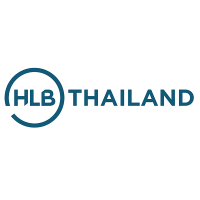
The new transfer pricing (TP) legislation in Thailand signals a tougher approach on TP, with the next step being its enforcement through tax audits.
Background
Thailand’s Revenue Code has for a long time contained provisions to give revenue officers the power to assess transactions for tax purposes at market prices. Off the back of these provisions, the Revenue Department issued an instruction in 2002 to provide guidance on determining the market price of transactions between related parties. The instruction essentially followed the OECD’s TP guidelines.
To fulfill Thailand’s commitment as a member of the OECD’s Inclusive Framework on BEPS, legislation was introduced to codify the arm’s-length principle into the Revenue Code and impart specific powers to assessment officers to impose TP adjustments on either income or expenses arising from non-arm’s length transactions, effective for accounting periods starting on or after January 1 2019.
The legislation also introduced mandatory TP documentation requirements and filing of TP disclosure forms by certain taxpayers.
Recent developments
Disclosure requirements
Impact of COVID-19 on transfer pricing
By June 2021, the Thai Revenue Department will have received the second round of disclosure forms for the December 31 2020 financial year.
In terms of analysing and identifying year on year trends, the Revenue Department will need to seriously consider the comparability of information that will be reported for the 2020 year, in light of the pandemic’s impact on trading conditions.
The information disclosed by taxpayers will likely not be sufficient to undertake meaningful analysis of year on year trends without requesting further information from taxpayers.
The new TP legislation grants the Revenue Department five years from the date of submission of the disclosure form to request additional information. The time given to reply is 60 days, extendable to 120 days but in the case of the very first request, the law grants a taxpayer 180 days to reply.
The Thai Revenue Department has not issued guidelines on the TP implications of COVID-19. The OECD issued a guidance at the end of 2020 under the OECD TP Guidelines, which was approved by Thailand, as a member of OECD’s Inclusive Framework. This guidance should be helpful in setting expectations in the event of a TP audit.
Thailand is a manufacturing and distribution hub for many multinationals. Usually, their subsidiaries operate in Thailand as low risk or routine businesses, meaning they perform routine functions and assume routine risks as compared to the entire value chain.
The Thai Revenue Department may therefore expect a reasonable return on a year-on-year basis for such companies. As such, these companies should document the reasons for any decline in profitability due to the pandemic in their TP documentation, showing clearly how it was caused e.g. by lower capacity utilisation, lower market demand, exceptional fixed costs, or other factors.



